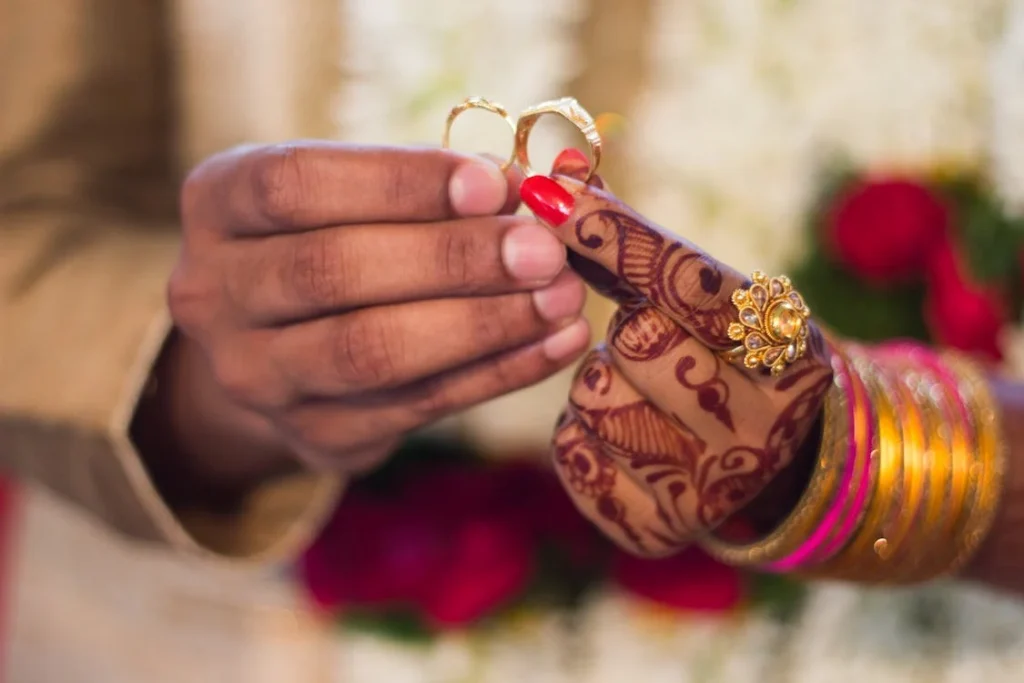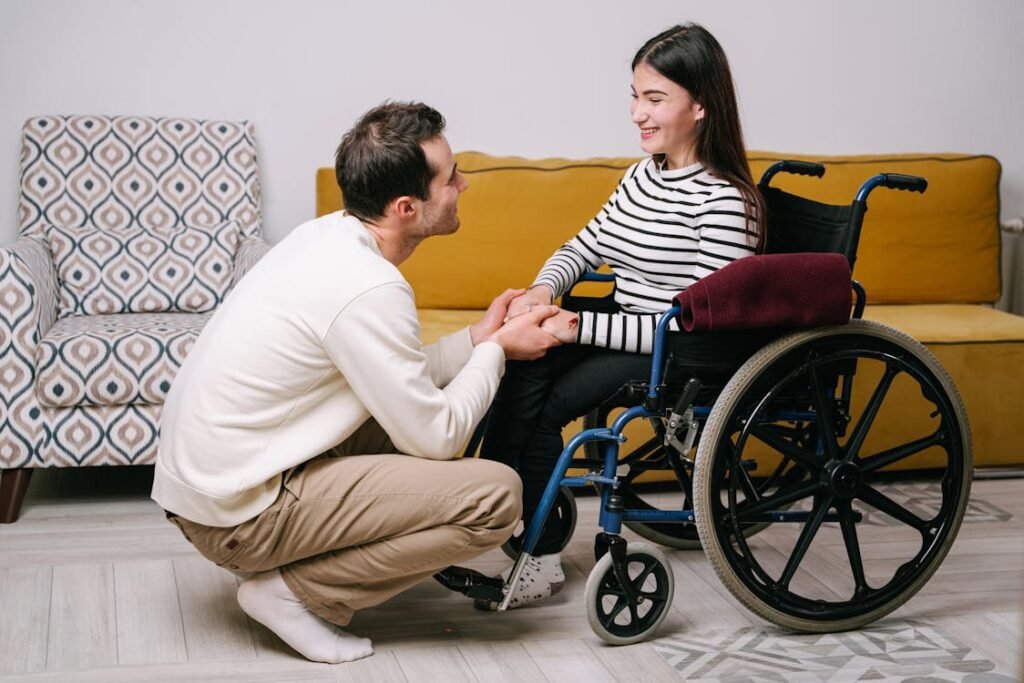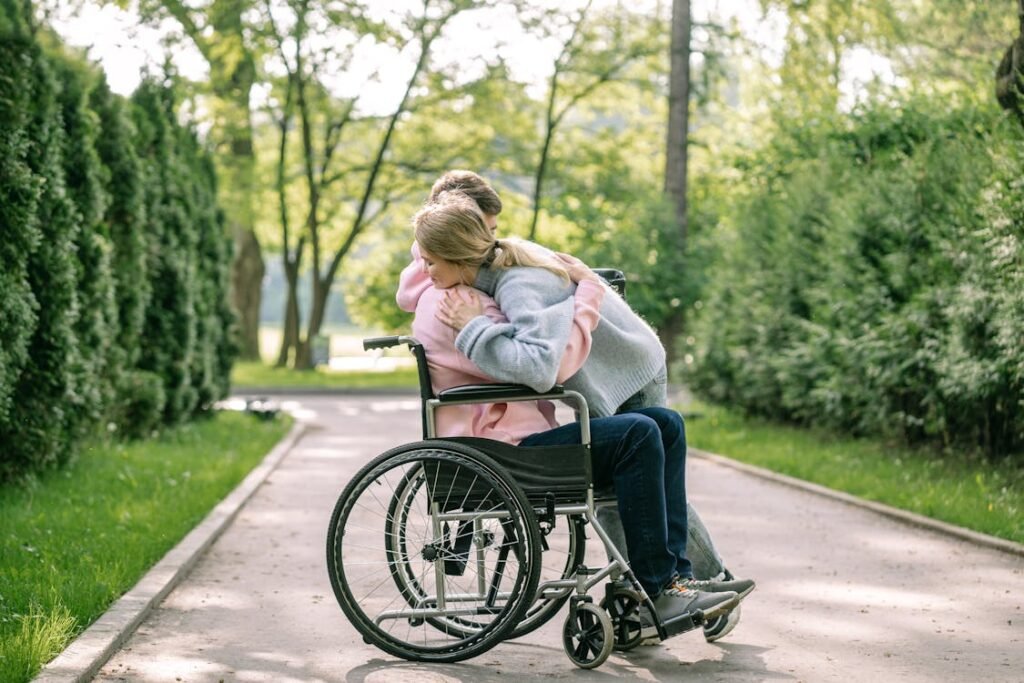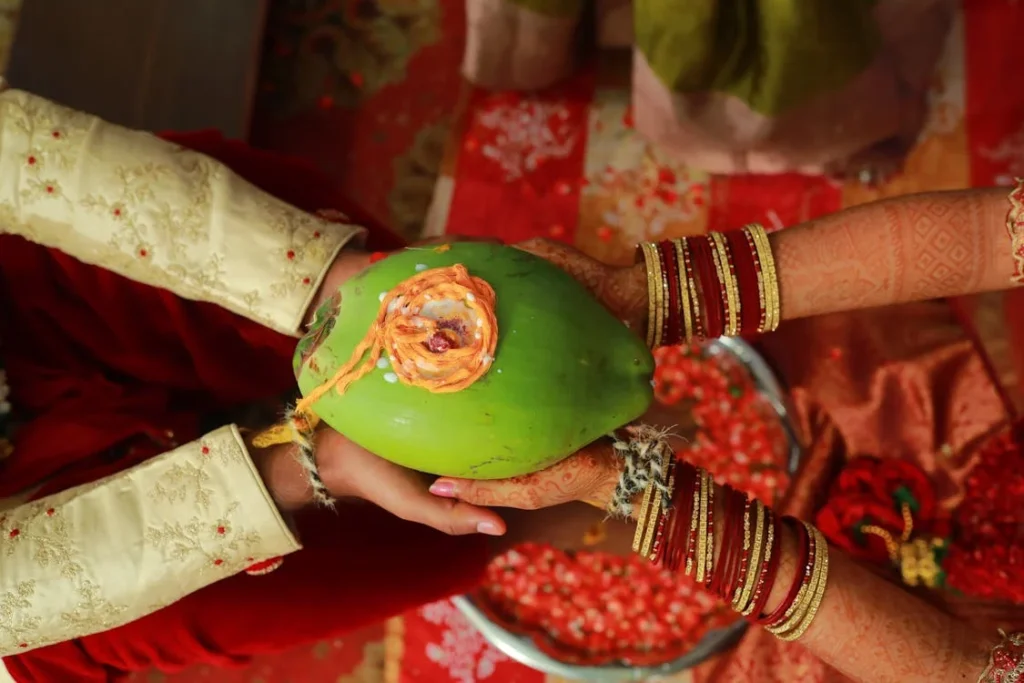Marriage is often seen as one of the most important milestones in life, shaping a person’s social status, emotional well-being, and family structure. But for individuals with disabilities, cultural expectations surrounding marriage can be both complex and challenging. Across different societies, traditional beliefs about love, companionship, and physical ability influence how disability is perceived in relationships.
In many cultures, disability is still viewed as a limitation, leading to social stigma and reduced opportunities for marriage. Families, who often play a major role in matchmaking, may hesitate to arrange a marriage for a disabled family member due to concerns about social acceptance, financial stability, or future caregiving needs. In some cases, individuals with disabilities may even be discouraged from seeking romantic relationships altogether, as if love and companionship are privileges reserved for the able-bodied.
At the same time, attitudes are changing. Greater awareness, legal protections, and evolving social values are helping to redefine what marriage means for people with disabilities. By understanding how cultural norms shape these experiences, we can work toward a more inclusive society where love and partnership are accessible to everyone.

Cultural Expectations and the Stigma Around Disability in Marriage
The Influence of Tradition and Family on Marriage Decisions
In many cultures, marriage is not just a personal choice—it is a family and community affair. Parents, relatives, and elders often play a significant role in choosing a spouse, ensuring that the union aligns with family expectations, social status, and financial security.
When disability is introduced into the equation, these expectations become more complicated.
Families may worry that a disabled individual will face challenges in fulfilling traditional marital roles. In patriarchal societies, a man is often expected to be the primary provider, while a woman is expected to manage household responsibilities and childcare.
If a person has a disability that affects mobility, speech, or any other physical function, families may fear that they will not be able to meet these expectations, making marriage seem like a difficult or even impossible goal.
In arranged marriage systems, where compatibility is often judged by practical and social factors rather than personal connection, disability is sometimes viewed as a disadvantage.
Some families may assume that a disabled individual will have fewer marriage prospects, leading them to compromise by accepting a match with significantly older, divorced, or economically unstable partners.
In extreme cases, people with disabilities may be entirely excluded from conversations about marriage, as if they do not have the right to seek companionship and love.
The Role of Social Stigma in Limiting Opportunities
The way disability is perceived within a society deeply affects a person’s chances of finding a partner. In some cultures, disability is associated with weakness, dependence, or even bad luck.
These misconceptions create barriers, making it harder for individuals with disabilities to be seen as desirable partners.
For women with disabilities, the stigma is often even greater. In many societies, a woman’s marriage prospects are closely tied to her perceived “perfection”—including physical appearance, health, and fertility.
A disability, whether visible or invisible, can be seen as a flaw that makes marriage more difficult. Some families may fear that a disabled daughter will not be able to conceive children or manage a household, leading them to avoid marriage discussions altogether.
Men with disabilities also face challenges, though their struggles are often tied to economic expectations. A man who is unable to work in a traditional capacity due to a disability may struggle to find a spouse, as financial stability is often a key factor in arranged marriages.
Even if he has a successful career, the perception that disability equates to dependence can overshadow his achievements, making it harder for him to be considered an eligible match.
Love Marriages and Changing Attitudes Toward Disability
While arranged marriages still dominate in many cultures, love marriages are becoming more common, particularly in urban areas.
In relationships based on personal connection rather than family negotiations, there is more room for understanding and acceptance of disability.
When individuals choose their own partners, they often prioritize emotional compatibility, shared values, and mutual support over societal expectations.
Despite this shift, cultural biases still influence love marriages involving people with disabilities. Families may discourage such unions, worrying that a disabled partner will bring added responsibilities or social judgment.
In some cases, people with disabilities themselves may hesitate to pursue relationships, fearing rejection or feeling unworthy of love due to years of internalized stigma.

Barriers to Marriage for People with Disabilities
The Role of Financial Independence in Marriage Prospects
Economic stability plays a crucial role in marriage decisions, particularly in societies where financial security is a priority for both individuals and families.
For people with disabilities, financial independence can be a determining factor in whether they are seen as a desirable partner. In cultures where men are expected to be the primary breadwinners, a disability that limits traditional employment opportunities can be viewed as a disadvantage.
Even when a disabled individual is educated and capable, the perception that they might not be able to support a family often overshadows their actual abilities.
Women with disabilities face a different kind of financial challenge. Many families assume that a disabled woman will not be able to contribute to household work or raise children independently, making her less desirable as a prospective bride.
Since financial expectations for women in marriage are often tied to dowries, inheritance, or family wealth, a disabled woman may be seen as an additional burden rather than a valuable partner. This results in fewer marriage proposals or, in some cases, complete exclusion from marriage discussions.
Even when a disabled individual is financially independent, there is often a lingering bias that they will require additional support from their spouse.
This misconception discourages families from considering them as marriage candidates, reinforcing the idea that people with disabilities are dependent rather than capable partners.
The reality is that with the right resources, education, and employment opportunities, many disabled individuals live independently, earn well, and can contribute equally to a marriage. However, cultural biases often prevent these facts from being recognized.
Accessibility, Mobility, and the Practical Challenges of Married Life
Beyond social and financial concerns, the physical environment plays a significant role in whether people with disabilities feel confident about entering into marriage.
In many countries, especially in rural areas, accessibility is still a major challenge. Homes are not designed to accommodate individuals with mobility impairments, and public spaces often lack ramps, elevators, or accessible transportation.
A person with a disability may hesitate to marry because they worry about how they will manage household responsibilities, navigate their daily routine, or care for children in an environment that is not designed for them.
For women, in particular, this concern is amplified due to the expectation that they will take on domestic duties, which may require physical mobility that they do not have.
In-laws may also be resistant to making adjustments, such as modifying the home or arranging accessible transportation, leading to further discouragement.
Couples in inter-abled relationships—where one partner has a disability and the other does not—often have to consider how accessibility will impact their daily lives.
If a person with a disability needs assistance with certain tasks, the level of support from their spouse can determine the success of the marriage.
However, cultural norms that emphasize complete independence may make it difficult for disabled individuals to ask for support without feeling like they are placing an unfair burden on their partner.
Arranged Marriage Markets and the Search for Compatible Matches
In societies where arranged marriages are common, matchmaking services and matrimonial websites often reflect cultural biases about disability.
Many families prioritize physical fitness, health, and social status when seeking a spouse, leading to a limited pool of potential matches for people with disabilities.
Some matrimonial platforms even allow users to filter out disability-related profiles, reinforcing exclusion and making it harder for disabled individuals to find partners through traditional means.
There is also a tendency to assume that a disabled person should only marry another disabled person, as if disability itself is the defining characteristic of compatibility.
While some couples do find shared understanding in such unions, this assumption overlooks the fact that personal values, interests, and life goals are far more important in determining a successful marriage.
Forcing people with disabilities into a narrow category of matchmaking restricts their choices and prevents them from finding partners based on genuine compatibility.

Challenging Cultural Norms and Creating Inclusive Marriages
Breaking the Myth That Disability Equals Dependency
One of the biggest misconceptions surrounding disability and marriage is the belief that a person with a disability will always be dependent on their spouse.
This stereotype leads to the assumption that disabled individuals cannot contribute equally to a relationship, making them less desirable as marriage partners.
However, this belief ignores the fact that disability does not define a person’s ability to love, support, and sustain a marriage.
In reality, many people with disabilities are fully independent, managing their careers, finances, and personal lives without assistance.
Even those who require support in certain areas can still maintain fulfilling relationships where responsibilities are shared, just like in any other marriage. The idea that a disabled spouse will always be a burden is based on outdated perceptions rather than real-life experiences.
Changing this mindset requires more representation of successful inter-abled relationships, where partners support each other without seeing disability as an obstacle.
When society begins to recognize that marriage is about mutual care rather than physical ability, the stigma surrounding disabled individuals as partners will begin to fade.
Redefining the Role of Family in Marriage Decisions
Since families play a significant role in marriage decisions in many cultures, their acceptance of disability is crucial for fostering more inclusive relationships.
Instead of viewing disability as a disadvantage, families need to focus on the qualities that truly matter in a marriage—compatibility, shared values, and emotional connection.
One way to change family perceptions is through awareness programs that showcase successful marriages involving people with disabilities.
When parents and relatives see real-life examples of happy, thriving couples where one or both partners have a disability, they begin to question their own biases.
Conversations around disability should shift from concerns about limitations to discussions about strengths, aspirations, and the potential for a loving partnership.
Additionally, family support can play a positive role in making marriages work. If families are open to modifying homes for accessibility, providing emotional encouragement, and rejecting societal pressure to treat disability as a flaw, individuals with disabilities will have more opportunities to form meaningful relationships without unnecessary barriers.
The Importance of Self-Confidence in Pursuing Relationships
Many people with disabilities internalize the negative cultural perceptions around them, leading to self-doubt when it comes to relationships and marriage.
Years of being told that they are less desirable, incapable, or unworthy of love can take a toll on their confidence, making them hesitant to seek companionship.
Overcoming this requires a shift in how disabled individuals see themselves. Self-worth should not be tied to physical ability but rather to personal qualities like kindness, intelligence, and emotional depth.
When people with disabilities recognize their value as partners, they are more likely to approach relationships with confidence rather than fear of rejection.
Support groups, disability communities, and mentorship programs can help individuals build self-esteem and navigate the complexities of dating and marriage.
Meeting others who have successfully built relationships can provide reassurance and encouragement, helping disabled individuals feel empowered in their pursuit of love.
Encouraging Inclusive Representation in Media and Society
Cultural norms are largely shaped by what people see around them, and the media plays a powerful role in shaping perceptions of disability and marriage.
In many films, television shows, and advertisements, disabled individuals are either absent from romantic narratives or are portrayed as objects of pity. This reinforces the idea that disability and love do not coexist.
Increasing the visibility of positive, realistic relationships involving disabled individuals can help normalize the idea that they are just as capable of love and marriage as anyone else.
Stories that showcase disabled characters as romantic leads, rather than side characters defined by their disability, can help challenge deep-seated prejudices.
Society as a whole must also take responsibility for creating an environment where people with disabilities feel included in discussions about love and relationships.
By promoting inclusive matchmaking platforms, organizing community events that welcome all individuals, and shifting public attitudes toward acceptance, we can pave the way for a future where disability is no longer seen as a barrier to marriage.

Legal Rights, Marriage Laws, and Disability Protections
Legal Barriers and Protections for Marriage and Disability
While cultural norms play a significant role in shaping marriage prospects for disabled individuals, legal frameworks also influence their rights and opportunities.
Many countries have laws protecting the rights of people with disabilities, but these laws do not always translate into real-world acceptance when it comes to marriage.
In India, for example, the Rights of Persons with Disabilities Act (RPWD) 2016 provides legal protections against discrimination in areas such as employment, education, and access to public spaces. However, when it comes to marriage, societal attitudes still dominate.
Families and matrimonial platforms continue to filter out potential matches based on disability, despite legal protections against discrimination.
There are no strong legal consequences for families that refuse to allow a disabled relative to marry, nor are there clear legal interventions to ensure that people with disabilities are given fair opportunities in matchmaking.
Another issue is the legal recognition of inter-abled marriages—when one partner has a disability and the other does not. In some cultures, legal systems have outdated rules regarding guardianship, financial dependence, and inheritance for disabled individuals.
This can create unnecessary complications when two people wish to marry, particularly if one partner requires government assistance and marriage would affect their eligibility for benefits.
In some cases, disabled individuals may even be denied the right to marry based on outdated legal definitions of capacity and consent.
Challenges in Divorce and Legal Protections for Disabled Spouses
While marriage laws are important, divorce laws also play a crucial role in protecting disabled individuals in relationships. In some cases, a disabled spouse may face greater vulnerability in divorce proceedings, particularly in societies where economic dependence is a major issue.
If a person with a disability has relied financially on their spouse, they may struggle to secure alimony, property rights, or child custody after a divorce.
Women with disabilities often face greater difficulties in divorce settlements. In cultures where women are already at a disadvantage in legal battles, a disabled woman may struggle even more to prove her ability to raise children, live independently, or secure financial support.
Many legal systems do not offer specific protections for disabled individuals facing divorce, making them more vulnerable to exploitation and abandonment.
Additionally, there is the issue of forced or manipulated marriages. In some cultures, disabled individuals—especially women—are pressured into marriages where they have little say in choosing a partner.
Families may arrange marriages for a disabled daughter under the assumption that any marriage is better than none.
In extreme cases, marriages may be used as a means of financial security, where a disabled individual is married off to someone simply because their family wants to shift caregiving responsibilities elsewhere.
Legal protections against forced marriage exist in many countries, but enforcing them can be difficult, particularly when cultural pressures outweigh legal enforcement.
The Need for Stronger Legal Protections and Awareness
To improve marriage opportunities for people with disabilities, legal systems need to address both discrimination in matchmaking and vulnerabilities in marriage and divorce.
Stronger enforcement of anti-discrimination laws is essential to ensure that disabled individuals are not unfairly excluded from the marriage process.
Matrimonial platforms, marriage bureaus, and families involved in arranged marriages must be held accountable for biased practices that limit opportunities for disabled individuals.
In addition, legal reforms should provide better protections for disabled spouses in cases of financial disputes, divorce settlements, and domestic abuse.
Governments should also work on awareness campaigns that educate families about the rights of disabled individuals, ensuring that marriage decisions are made based on respect, love, and mutual consent rather than societal pressure or outdated beliefs.

The Role of Religion and Spiritual Beliefs in Disability and Marriage
Religious Interpretations of Disability in Marriage
Religion plays a central role in shaping cultural norms around marriage, influencing how societies perceive disability within the institution of marriage.
Many religious traditions emphasize values such as compassion, acceptance, and the belief that every individual is created with purpose.
However, the way disability is interpreted within different religious frameworks often determines whether a person with a disability is seen as a suitable marriage partner.
In some traditions, disability is viewed as a test of faith, a challenge that must be endured with patience and resilience.
While this perspective can sometimes foster empathy and support, it can also lead to the belief that a disabled person’s suffering is part of their spiritual journey, rather than something that can be addressed through medical advancements or social inclusion.
This can discourage families from actively seeking marriage opportunities for a disabled relative, assuming that marriage is not meant for them.
Other religious interpretations view marriage as a sacred bond where both partners must fulfill specific roles, such as providing for a family, raising children, or participating in religious rituals.
If a person with a disability is perceived as unable to meet these traditional roles, their eligibility for marriage may be questioned.
This is particularly evident in patriarchal religious structures, where men are expected to be protectors and providers, and women are expected to manage domestic responsibilities.
A disability that affects mobility, speech, or cognition can be seen as a hindrance to fulfilling these expectations, even when the individual is fully capable of leading a meaningful and independent life.
Some faith-based communities actively work to break down these barriers by promoting more inclusive interpretations of religious teachings.
They emphasize that marriage should be based on love, companionship, and mutual support rather than rigid expectations of physical ability.
In such communities, there is growing recognition that people with disabilities have the same emotional and spiritual needs as anyone else, and they should not be excluded from the opportunity to marry based on outdated beliefs.
Religious Marriage Ceremonies and Accessibility Challenges
Even when a disabled individual finds a partner and is ready to marry, the logistics of religious marriage ceremonies can present additional barriers.
Many places of worship, particularly in rural areas, lack accessible infrastructure, making it difficult for individuals with mobility impairments to participate fully in wedding rituals.
Religious traditions that involve standing, kneeling, or walking around sacred objects can be physically challenging for some, leading to concerns that the couple will not be able to properly complete the ceremony.
In some cases, religious leaders may express hesitation in performing a marriage ceremony for a disabled person, fearing that the marriage will not be successful due to their condition.
This can create unnecessary delays or discourage couples from pursuing a religiously recognized union. Additionally, if a person with a disability requires modifications to the traditional ceremony, such as performing certain rituals while seated or using assistive devices, family members may worry that these changes will not be accepted by the wider religious community.
Efforts to make religious spaces and ceremonies more accessible are gradually increasing, with some faith-based organizations actively working to accommodate people with disabilities in marriage rituals.
However, there is still a long way to go in ensuring that these changes are widely adopted and that religious authorities openly support disabled individuals in their pursuit of marriage.
Faith-Based Support Networks and Changing Attitudes
Despite the challenges, many religious communities have begun to create faith-based support networks that help people with disabilities find companionship and marriage opportunities.
Some religious organizations actively encourage inclusive matchmaking, helping disabled individuals connect with potential partners who value them for their character and faith rather than focusing on physical limitations.
Spiritual counseling has also become an important resource for individuals with disabilities who struggle with societal judgment about their eligibility for marriage.
Faith-based therapists, religious scholars, and disability advocates work together to challenge harmful beliefs and promote a more inclusive vision of marriage. These initiatives help shift the narrative from seeing disability as a burden to recognizing it as a part of human diversity.
As religious perspectives on disability continue to evolve, there is hope that more communities will embrace the idea that marriage should be based on love, trust, and shared values rather than narrow definitions of physical perfection.
With greater awareness, advocacy, and reform, faith-based institutions can play a significant role in changing cultural perceptions and making marriage more accessible for individuals with disabilities.

The Role of Media and Representation in Shaping Perceptions of Disability and Marriage
How Media Influences Cultural Attitudes Toward Disability in Relationships
The way disability is portrayed in films, television, and social media plays a significant role in shaping how society views disabled individuals in the context of marriage and relationships.
For decades, mainstream media has reinforced negative stereotypes about disability, portraying disabled characters as dependent, undesirable, or incapable of forming romantic relationships.
These portrayals have contributed to real-world stigma, making it even harder for people with disabilities to be seen as equal partners in marriage.
In many films and television shows, disabled characters are either pitied or portrayed as sources of inspiration, rather than as individuals with normal desires for love, companionship, and family life.
A common narrative is the “self-sacrificing spouse” trope, where a non-disabled character marries a disabled person out of duty or pity rather than love.
This storyline, while well-intentioned, reinforces the harmful idea that a relationship with a disabled person is an act of charity rather than a mutual partnership.
Another issue is the lack of representation of disabled people in lead romantic roles. While stories about disability exist, they are often framed around struggle rather than romance.
This absence of positive, realistic portrayals in popular culture reinforces the misconception that disabled individuals are not part of the normal dating and marriage world.
If people rarely see disabled individuals in romantic roles on screen, they subconsciously assume that love and disability do not belong together.
Changing the Narrative: Positive Representation in Media
While media has historically contributed to stigma, there is now a growing push for more inclusive and realistic portrayals of disability in relationships.
Filmmakers, writers, and content creators are beginning to challenge outdated stereotypes by telling authentic stories of love, marriage, and disability. These portrayals help normalize the idea that disabled people can have fulfilling romantic relationships just like anyone else.
One of the most effective ways to change public perception is through films and shows that feature disabled actors in meaningful roles.
When audiences see real disabled individuals playing characters who fall in love, get married, and navigate relationships, it helps break down the belief that disability is an obstacle to romance.
Authentic representation also ensures that stories about disability are told with accuracy and depth, rather than relying on exaggerated tropes or unrealistic depictions.
Social media has also become a powerful tool for shifting narratives around disability and marriage. Many disabled influencers and content creators openly share their experiences in relationships, challenging societal misconceptions through real-life examples.
These personal stories provide an alternative to the traditional media narrative, showcasing love, marriage, and dating as natural parts of life for disabled individuals.
The Responsibility of the Entertainment Industry in Promoting Inclusivity
The entertainment industry has a responsibility to promote more inclusive and diverse storytelling. Filmmakers and producers must make a conscious effort to include disabled voices in the creative process, ensuring that the stories being told reflect real experiences.
Writers should move away from portraying disabled individuals as passive characters in their own love stories and instead create narratives where they are active participants in relationships, making choices and experiencing love without it being framed as extraordinary.
Romantic films and television shows should feature disabled characters as desirable, independent, and confident in their relationships.
Instead of focusing solely on disability, stories should explore the complexity of love, attraction, and companionship, allowing disabled characters to experience the same range of emotions and challenges as any other romantic lead.
Beyond scripted content, reality shows, documentaries, and talk shows can also play a role in normalizing disability in relationships.
Programs that highlight real couples where one or both partners have a disability can help audiences understand that these relationships are just as valid and fulfilling as any other.
When disability is presented as a normal aspect of life rather than a defining limitation, societal attitudes toward marriage and disability will begin to shift.
Moving Toward a More Inclusive Future
Media has the power to shape culture, influence beliefs, and challenge biases. By ensuring better representation of disability in love and marriage, the entertainment industry can help break down long-standing barriers and foster a more inclusive society.
As audiences are exposed to more diverse narratives, they will begin to see disabled individuals as equal partners in relationships rather than as exceptions.
With continued advocacy, storytelling, and representation, the outdated notions surrounding disability and marriage can be replaced with a more inclusive vision—one where love is not limited by physical ability, and marriage is defined by mutual respect, trust, and genuine connection.
Conclusion
Cultural norms have long shaped the way society views disability and marriage, often creating unnecessary barriers for disabled individuals seeking love and companionship. Deep-rooted stigmas, economic concerns, and traditional family expectations have made it difficult for many people with disabilities to find suitable partners. However, attitudes are gradually shifting as awareness grows, legal protections strengthen, and media representation becomes more inclusive.
Marriage should be about love, trust, and mutual support rather than outdated beliefs about physical ability. When families, communities, and institutions recognize that disabled individuals can lead fulfilling romantic lives, the path toward greater inclusion becomes clearer. Faith-based organizations, legal systems, matchmaking services, and the entertainment industry all have a role to play in normalizing disability in relationships.
True progress will come when disability is no longer seen as a limitation in marriage but simply as one aspect of a person’s identity. By fostering a culture that values individuals for their character, aspirations, and emotional depth rather than just their physical abilities, we can create a world where love is accessible to everyone, regardless of disability.



